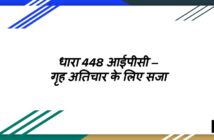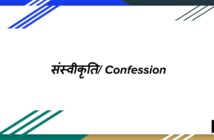In our daily life transactions, we come across instruments such as promissory notes and cheques negotiated between the parties to make payments. This article will discuss what are Negotiable Instruments, different types of Negotiable Instruments, and the recent amendments to the Negotiable Instrument Act, 1881?
What are Negotiable Instruments?
Negotiable Instruments is a written document or a promise to pay a certain amount to a particular person at a specific date or on-demand. It can be in the form of a promissory note, bills of exchange, or a cheque signed by the person who makes such a promise. A Negotiable instrument is a mode of transferring a debt from one person to the other.
What are the Characteristics of a Negotiable Instrument?
For a document to be a negotiable instrument, it should have the following characteristics:
- ‘Negotiable’ –The instrument must be ‘negotiable’, which means it must be freely transferrable from one person to another.
- ‘Instrument’ – It has to be a written document or a promise to pay.
- ‘Indorsed’ – The instrument has to be signed by the issuer, drawer, maker, or person making a promise.
- Information- It should contain information such as the amount and interest to be paid and the date of such payment.
- Title – the holder (the person who acquires the instrument for consideration and in good faith) gets title free from all defects during a transaction.
What are the Types of Negotiable Instruments?
Negotiable Instruments can be categorized into negotiated by statute and by Usage.
Instruments that are negotiated By Statue are Promissory Note, Bills of Exchange, and Cheque.
Promissory Note: (Section 4 of the Negotiable Instrument Act, 1881)
A promissory note is a written note that contains an unconditional undertaking signed by a maker (person making a promise) that the maker shall pay to the payee (to whom the promise is being made) a certain amount at a stipulated time or on-demand at some future date.
It is easily understandable and straightforward note.
E.g., ‘A’ promises to pay ‘B’ Rs. 15,000/-.
E.g., ‘A’ acknowledges himself to be indebted to ‘B’ in Rs. 10,000/- to be paid on demand for a value received.
However, where ‘A’ promises to pay ‘B’ Rs. 20,000/- after deducting the amount which ‘B’ owes to ‘A’ is not a promissory note.
Bill of Exchange (Section 5 of the Negotiable Instrument Act, 1881)
It is a written instrument containing an unconditional order signed by the maker, which directs a particular person to pay a certain amount only to a specific person or order or bearer of the instrument. If issued by an individual, a bill of exchange is called a ‘trade draft,’ whereas; if any financial institution issues it, it is called a ‘bank draft.’ It acts as a promissory note in international trade, where the buyer or importer addresses the bill of exchange in a transaction. It is a convenient means of credit and is easily transferrable. Bill of Exchange can be of two types, namely, Inland Bill or Foreign Bill.
Inland Bills
Bills that are drawn in India and are paid in India. The person to whom it is being paid could be an Indian or a foreigner.
Foreign Bills
Bills that are not drawn in India but are payable in India to an Indian or a foreigner.
Cheque (Section 6 of the Negotiable Instrument Act, 1881)
A Cheque is a kind of exchange bill drawn on a specified banker that is payable only on demand. It contains the signature of the drawer (person who draws the cheque). In simple words, the cheque orders the bank to make payment of the stipulated amount to the drawee. The validity of a cheque is three months. The major drawback of a cheque is that depositing a cheque is time-consuming as it takes time to draw funds into the payee’s account. One of the advantages of a cheque is that the payment can be stopped in the process before the amount is withdrawn.
Cheque can be of different types: Crossed cheque, Order cheque, Bad cheque, State cheque, Mutilated cheque, Bearer cheque, Digital cheques such as cheque in electronic form, Golden cheque, and Traveller’s cheque.
Instruments that are negotiated By Usage: Bank Note, Share Warrant, Bearer Debenture, Debenture Warrant, Draft, and Treasury Bill.
Bank Note
Bank Note is a kind of promissory note which one person gives another for a certain amount payable at a particular date.
Share Warrant
It is a transferrable document issued or made by a company stating that the bearer is entitled to receive certain shares or stocks. It has to be issued with the permission of the Central Government or Reserve Bank of India.
Bearer Debentures
Bearer Debentures are also known as unregistered debentures, are transferrable to the bearer by delivery. To receive payment of interest, the bondholder has to submit the interest payment coupon attached to the security to the issuing company or bank. It does not mention the name and address of the bearer. It is redeemable within 30 days from the maturity date. These debentures are easily transferrable and can be sold without any third-party involvement. The significant risk involved in this kind of debenture is losing the interest payment coupon, which is attached to the bond; once it is lost, it won’t be redeemable.
Dividend Warrant
A written document states that the shareholder is entitled to receive a dividend when a company issues a warrant stating that its shareholder would receive a dividend instead of paying a dividend in cash.
Bank Draft
When a purchaser issues a bank draft, the bank withdraws a draft amount from the purchaser’s account and store or deposit the said amount in an internal report. When the seller presents the bank draft to receive payment, the bank pays such an amount to the seller. Such a draft contains the payee’s name and the amount payable. It is a secure mode of payment.
Treasury Bill
Treasury Bill is a secure, government-assured fixed income investment instrument. In this instrument, the amount, date of issue, and maturity date is predetermined. Any firm, company, bank, trust, financial institution, State government, provident fund, an insurance company can invest in the treasury bills. It is issued at a discount price and is redeemed at face value; no interest is paid to the investors as it is a zero-coupon bond. It is a kind of promissory note which guarantees payment at a future date.
The Negotiable Instruments (Amendment) Bill, 2017
On 2nd January 2018, the Negotiable Instrument (Amendment) Bill was introduced in Lok Sabha. The bill defines the promissory notes, Bill of exchange, and cheque. It also specifies the penalties for the dishonor of cheques and other violations relating to the negotiable instrument. It has inserted Section 143A, which allows the court to grant interim compensation to the complainant. Such interim compensation shall be made during the trial proceedings or framing of charges if the person is found guilty of any charge. Such interim compensation shall be paid within 60 days and shall not exceed 20% of the cheque’s total amount.
It also specifies that wherein the drawer appeals to the appellate court, he will first have to deposit 20% of the trial court’s compensation – which would be in addition to the interim compensation paid during the trial proceeding.
If the drawer is acquitted, the court shall direct the complainant to repay the interim compensation amount with interest to the drawer within 60 days.
Conclusion:
A negotiable instrument is a written document that is transferred from one person to another. It could be of various types, and each type has its own feature that is different from the other in terms of mode of payment and the risk associated. It enables the smooth functioning of transactions. A negotiable instrument is acceptable both domestically and internationally.

